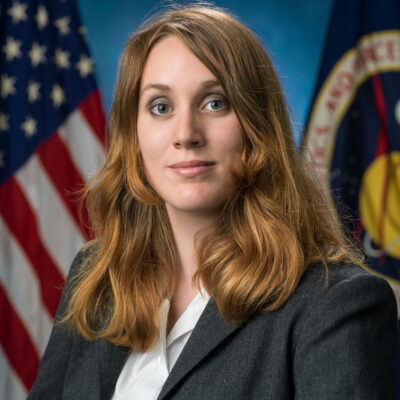Student Spotlight: Leah Lackey

Photographer: Lauren Harnett
October 23, 2023
Leah Lackey is a doctoral student in electrical and computer engineering from Chapel Hill, North Carolina. She attended NC State University and Western Washington University and now studies robotics with an interest in motion planning and machine learning at Cornell.
What is your area of research and why is it important?
My research area is robotics, with a particular interest in motion planning and incorporating my past research experience with machine learning. I have always had a great interest in robotics due to its multidisciplinary nature and great potential to positively impact society. I also have a deeper, more personal draw to it from my experience undergoing a surgery with the da Vinci robotic surgical system. While I’m still deciding on a specific project to dive deeper into, I am heavily influenced by a desire to help people through robotics.
What are the larger implications of this research?
I believe robotics has the potential to improve the quality of life for a large number of people. For example, it can be used for accessibility purposes, and within the domain of surgical robotics, its utilization can enable a quicker recovery time due to smaller incision areas. Additionally, beyond human impact directly, it is useful for scientific discovery such as space exploration, which was initially how I became interested in robotics.
What does it mean to you to have been selected for the NSF CSGrad4US program?
Being selected for this fellowship means a lot to me. It provides the flexibility within my first three years of the Ph.D. program to just focus on research, with guaranteed funding and mentorship support from the Computing Research Association (CRA). I have also met good friends through the fellowship and we actively support each other through our Ph.D. programs. I encourage anyone who qualifies to apply!
How did the program prepare you for the graduate school application process?
The fellowship is composed of two parts: First, we had a series of group meetings where folks from the CRA provided information and advice on how to apply to different universities and reviewed general requirements for the fellowship itself. Occasionally there were also panels which included speakers from the cohort before ours, and from professionals within computing and computer engineering. Second, the fellowship also has a one-on-one mentorship component for each fellow, where we were provided with feedback throughout the entire process of applying to grad school.
What will this fellowship allow you to do that you might not have been able to otherwise?
It has definitely provided the freedom for me to focus only on research within my first few years of my Ph.D. program without needing to worry about funding for a while. Additionally, I wouldn’t have met my mentor and friends without the program, who have been a huge part of my support group during grad school so far.
President Pollack has designated this academic year’s theme as freedom of expression. What does freedom of expression mean to you?
For me, it means to never be afraid to genuinely be yourself. I believe an important part of thriving is just being yourself and trying to not worry about what others think of you. Don’t be afraid to speak up and be creative. I believe this is also a fundamental component of doing impactful research.
What are your hobbies or interests outside of your research or scholarship?
Hiking, dancing, playing guitar (badly), and starting to get into fly-fishing and bird watching.
Why did you choose Cornell to pursue your degree?
While drawn to the overall academic excellence of Cornell, I loved the people I met during my visit days. I also enjoy the local environment and city. Ithaca is quite peaceful and there is a little bit of everything here. Most importantly, Cornell is serious about robotics research and I knew it would be a great place to materialize my dream of becoming an expert in robotics.
